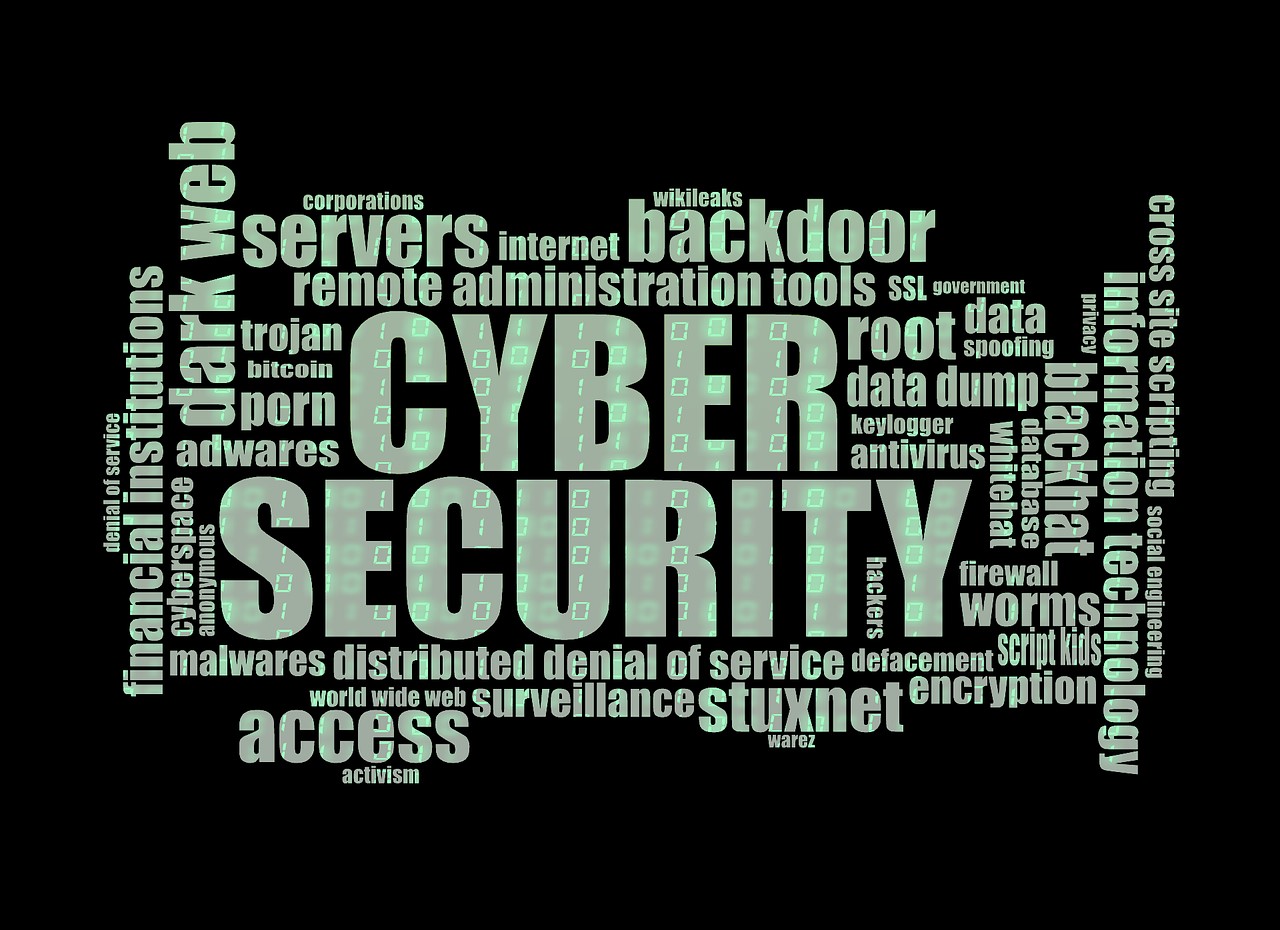Cyber security is very difficult and when it comes to learning cyber security it can be considered to be a very difficult field. However, this entirely depends on the perspective of an individual. If an individual is interested in technology then cybersecurity might not be difficult for them.
During the past decade, there has been tremendous growth in the field of technology as well as cybersecurity and the question that “Is cyber security hard?” has popped up in the minds of many people. However, this is still a very new concept and many people do find it hard to learn. In order to find out if cyber security is hard. One has to understand the concept of learning what cyber security actually is.
This blog will be a great guide to that.
What is cyber security?
The concept of cyber security can be explained in simple words. It is referred as protecting the devices that are connected to the internet against any kind of cyberattacks. These devices usually include servers, laptops, smartphones smart tvs, webcams and vehicles. As there are many advancements in technology, there is an increase in the cyber security professionals and they find new ways to protect their online assets against any kind of attacks through the software development and testing.
Now the real question that arises is why is cybersecurity hard?
In order to make a career in cyber security, this is usually challenging and sometimes quite difficult depending on the specialty and the requirements of an individual. Here are some of the factors that make cyber security very hard to learn:
Large number of tools:
There is a huge potential of attacks and as a cyber security professional an individual must be familiar with the complex tools of cyber security such as the technical skills and the software. This includes the intrusion detection systems, firewalls, vulnerability scanners and more.
Constant updating:
As the new vulnerabilities are discovered, the cybersecurity professionals need to update their knowledge from time to time. This is the main reason why they need to keep learning which is a very hard thing keeping in mind that an individual already has a job.
Ever changing technology:
This technology is used in the cyber security as it is changing constantly and it makes it very challenging to keep up. An example will be how to protect yourself against the malware or any ethical hacking in 2022 may differ from that of 2010.
Besides these challenges, the career in the field of cybersecurity is very rewarding. As the technology has made many advancements, there is a high demand for professionals that will stay strong. Additionally this is an exciting field with high job satisfaction rates.
Does it take a long time to learn cybersecurity?
Cyber security programs generally take three to four years to complete in most cases, while a master’s degree usually takes two more years to complete.
It would take you approximately an extra three to five years to acquire a Ph.D. in cyber security if you want to pursue this pathway. In addition to formal education, there are also a number of online certifications and courses out there that can help you learn more about cyber security. Each course will have a different duration depending on the subject matter covered. Additionally, you can develop your soft skills by working with a mentor during the course.
How to start learning cybersecurity?
In order to build a cyber security career here are some of the key takeaway points that needs to be kept in mind:
1. Build a foundation with an introductory course.
In a cybersecurity course, you will not only be able to build foundational skills in a structured learning environment, but you will also gain a firsthand exposure to what cybersecurity is about. If you are interested in a career in information security, then this could be a good opportunity for you to find out whether it will fit your unique goals and interests.
The following topics may be covered in an introductory cybersecurity course:
- The tools that are used in cyber security and the attack vectors that are used
- Complying with industry standards and ensuring security
- Systems, networks, and data security are some of the issues that need to be addressed
- Response to incidents
- Testing of penetrations
- Intelligence about cyber threats
If you begin from the start with a broad overview, you will have a better understanding of what skills you already possess, which areas of cybersecurity you might be interested in working in, and which skills you will need to acquire to get there.
2. Evaluate your passion for technology.
It is important to remember that difficult is not the same as challenging. The learning process for cybersecurity can seem daunting at first, but it doesn’t have to be difficult, especially if you have a passion for technology. If you cultivate a curiosity for the technologies you are working with, you might find that it will become quite easier for you to master the more difficult skills.
There are times when just the act of learning is enough to build enthusiasm about a given topic or concept. If you thrive on people’s enthusiasm and are someone who likes to engage with communities of other security professionals, I would suggest that you make yourself involved in one of the cyber security communities.
It is possible that after you have taken a few courses, you will find that your passion lies somewhere else. This is perfectly fine too. In today’s world, cybersecurity is a very popular, interesting, challenging and well remunerated profession, but it’s not for everyone.
3. Learn a little every day.
The building of a cybersecurity skill is very important and this usually means that you have to drop everything for getting a degree or join a full time boot camp. Giving a little time each day often results in bigger and better things at the end. Giving around 15 minutes on each day to focus on cyber security often results in becoming a professional in this field.
Apart from setting aside a consistent time it is also a good idea to plan for what do you want to accomplish in this each and every session. When you set up some time to learn something you need to be specific and focus on your learning. This might seem an easy task but for most of the people it is very hard to take some free time from their lives and to learn something during this time. What we actually do during our free time is to usually waste it. This is reason why cybersecurity is considered hard.
4. Become an ethical hacker.
One of the best ways to learn is considered to be learning by doing. In the concept of cybersecurity, an individual gets their hands on experience with the help of using the tools and techniques and then using it to practice the ethical hacking. There are many websites that are built for the purpose of allowing you to build your cybersecurity skillset with the help of legal and gamified experiences.
As an individual continues to build their skills, there might be bug bounty programs where the companies offer the cash bonuses to the independent security researchers and they can find and report the flaws in security. This is a great way to allow you to test your skills that are in the real world and to also create opportunities in order to network with other security professionals. Examples of such sites are bugcrowd and Hackerone.
5. Practice in simulated environments.
It is common for cyber security courses to have virtual labs where you can practice using actual security tools in simulation environments while applying your skills in the classroom. It’s convenient to have these labs ready to use as part of a structured course, but you can also set up your own virtual lab if you’d like to get as much practice as you wish. You need to get three elements here to build your lab environment:
- Virtual machines can be hosted in a cloud environment
- To launch an attack on a target machine
- A machine that you will use to plan and execute attacks, or an attack box
This short guide will walk you through setting up your own cybersecurity lab if you want a more detailed explanation. This short guide will walk you through setting up your own cybersecurity lab if you want a more detailed explanation.
6. Mix it up with workplace skills.
Spend some time working on your workplace skills if you wish to take a break from developing technical skills.
Cybersecurity experts are often called upon to explain complicated concepts to people with no technical background, which could be quite difficult. Additionally, you may also work cross-functionally with other teams, such as legal or public relations. You may be required to make critical decisions on the spot in many cybersecurity roles. Hence, hiring managers look for candidates who are adept at recognizing situations and reacting accordingly.
7. Get involved in the cybersecurity community
I can imagine there would be a great deal of energy generated by watching this for that group of people who are interested in cyber security. In this regard, it is helpful to join an online forum or any other online community, as it acts as a valuable resource to help individuals learn a lot more about cyber security and to ask questions related to it in a conventional manner. If someone however is not ready to participate in all sorts of professional organizations then they would probably benefit from starting on reddit, as it is one of the best places to start.
8. Earn a certification
The cybersecurity certification is a big deal because it doubles the effectiveness of your skill set when you prepare for it. It is very essential for you to have certifications of any kind for the sake of an organization, and it also helps to give you an edge while applying for jobs. The added benefit of this is that it also makes you a very competitive job candidate and the chances of you being hired are much higher than average. Eventually, it would be most likely in order for you to have a good career and future that you would need a certain job. Based on statistics provided by Burning Glass Technologies, there are almost six out of ten job postings that require certification.
9. Apply to companies that provide training.
Cybersecurity threats and technologies are constantly changing, both in their frequency of occurrence and in the technology’s capabilities as it advances. As the threat landscape continues to evolve with time, successful professionals within the field of cybersecurity are often lifelong learners, creating their own skills based on the changes in the threat landscape with time. As a result, they are expected to grow in their organization and also gain a higher level of knowledge
You should take into consideration companies that invest in ongoing training when looking for a job in cyber security. By doing so, you can not only save money, but you will also save time. If internal training is part of your role, you may be expected to do it at the expense of the company and during work hours if this is the case.
During an interview, you may find it useful to ask a question like this, as it can demonstrate your willingness to learn when it’s your turn to ask one.
What Is Cyber Security Used For?
A major purpose of cyber security is to protect individuals and organizations from unauthorized access to their data and information. In order to ensure that information is protected from malicious threats, it can be classified into different categories according to their implications. Below will be a list of the different uses of cyber security.
- Data protection:
Data in systems or databases are protected against cyber attacks and criminals through cyber security. This is paramount for organizations dealing with sensitive data. The security of data is one of the most important things as it helps the organization to grow and have trusted relationship with its customers.
- Network protection and security:
Using network security, computer networks and all databases related to them can be kept independent of external attacks, intrusions, and access. This is very important for the organization as the data is one of the most essential parts of an organization.
- Software protection:
Using this method, an organization’s software can be protected from being accessed by unauthorized parties. In the realm of cyber security, you can use tools, libraries, and technologies to protect your program.
- User protection:
This is an aspect of cyber security that refers to the availability of protection for a person rather than an organization. Also called end-user protection or security, this refers to the security of those using software systems and digital systems. Such systems provide the advantage of secure and protected usage against malware and other cyber security threats.
- Business protection:
An organization or business has to protect its entire system by implementing this type of protection. A business system must be protected from malware, phishing and other cyber attacks in order to remain effective. The information security process also includes the process of detecting and responding to cyber attacks by the organization and the operation of the computer systems.
The above mentioned reasons also justify that why is cyber security hard.
Is Cyber Security Hard to Learn?
The right amount of effort and time should be put in to the study of Cyber security when you are willing to do that, just like with any other field. This is one of the easiest fields to understand since it doesn’t require advanced math’s, making it a lot easier. As long as you have the requisite technical skills, problem-solving skills, and other qualities that are needed to become a cyber security engineer, you will be able to pursue this career.
Keeping up to date with the cyber security industry trends is one of the most challenging aspects of cyber security, as you will have to constantly learn and remain abreast of what’s happening in this industry, regardless of your level of experience in order to stay competitive. In spite of this, people who are passionate about the field and who enjoy the thrill of taking on new and challenging challenges will find that learning and practicing cyber security is easier.
Is It Hard to Get a Job in Cyber Security?
Since cyber security is such an important aspect of the way businesses operate today, it isn’t hard to find a job in that field. It is possible to work in many different industries, such as financial institutions, manufacturing, healthcare, communications, retail, and government. These industries have also offered countless job opportunities in this exciting area.
Jobs You Can Get with Cyber Security Skills
- Analyst of information security. These professionals perform tasks such as implementing security measures on computer systems or networks, testing those measures, and monitoring the effectiveness of security measures. Besides documenting the security process, they also produce reports on the progress and safety of the entire network as a whole. According to the Bureau of Labor Statistics, the compensation of these workers is $103,590 on average a year.
- Engineer for network security. Cyber-security specialists are experts in protecting networks from cyberattacks, cyber threats, bugs, and malware. As digital networks are being tested and configured, cyber-threats and malware threats are being detected and prevented. The average salary earned by network security engineers according to PayScale is $90,566 per year.
- Architect for information security. As security analysts, we are responsible for the design, installation, testing, and implementation of protocols and solutions for a company’s security. During the review process, they make recommendations for enhancing the efficiency of an organization’s security systems. As per PayScale, their median annual salary is $126,019, with some earning more than $126,000.
- Consultant in the field of cyber security. A security consultant is a professional who reviewed, analyzed, and assessed a company’s security system to detect potentially damaging risks and propose solutions it may need in order to protect itself. The annual average salary of these professionals is $85,865 per year, according to PayScale.
- Administrator of security systems. Cyber security experts run, configure, facilitate, monetize, and troubleshoot an organization’s security systems as part of their responsibilities. In their work on developing security privacy policies, measures, and training documents, they help employees understand the various security solutions available to them. According to PayScale, the average salary for these professionals is $67,659 a year.
Is Cyber Security Worth Learning?
I believe it is a worthwhile endeavor to learn about cyber security. Getting the job done is challenging, but it can also be an exciting experience if you are passionate about it and willing to put in the required time and effort. In the course of your study, you will encounter some obstacles, which is to be expected as with any field of study. However, with the right instruction and a positive mindset, you will be able to overcome them.
Adding security analysts to your careers ought to be an exciting prospect, as the Bureau of Labor Statistics reports that your job outlook is 33 percent, which is faster than the average for all occupations. When you take the right attitude, you will not only be able to find work, but you will also be able to maintain your job security. People in the area of cyber security often earn a high salary as well. In the long run, a career in cyber security is a great choice regardless of how you look at it.





![Technology Week Blog Us [June 2022] Let's Know The Details 2 Technology Week Blog Us [June 2022] Let's Know The Details](https://pingquill.com/wp-content/uploads/2022/06/Technology-Week-Blog-Us.jpg)




1 Comment
Its superb as your other blog posts : D, appreciate it for putting up. “Even Albert Einstein reportedly needed help on his 1040 form.” by Ronald Reagan.